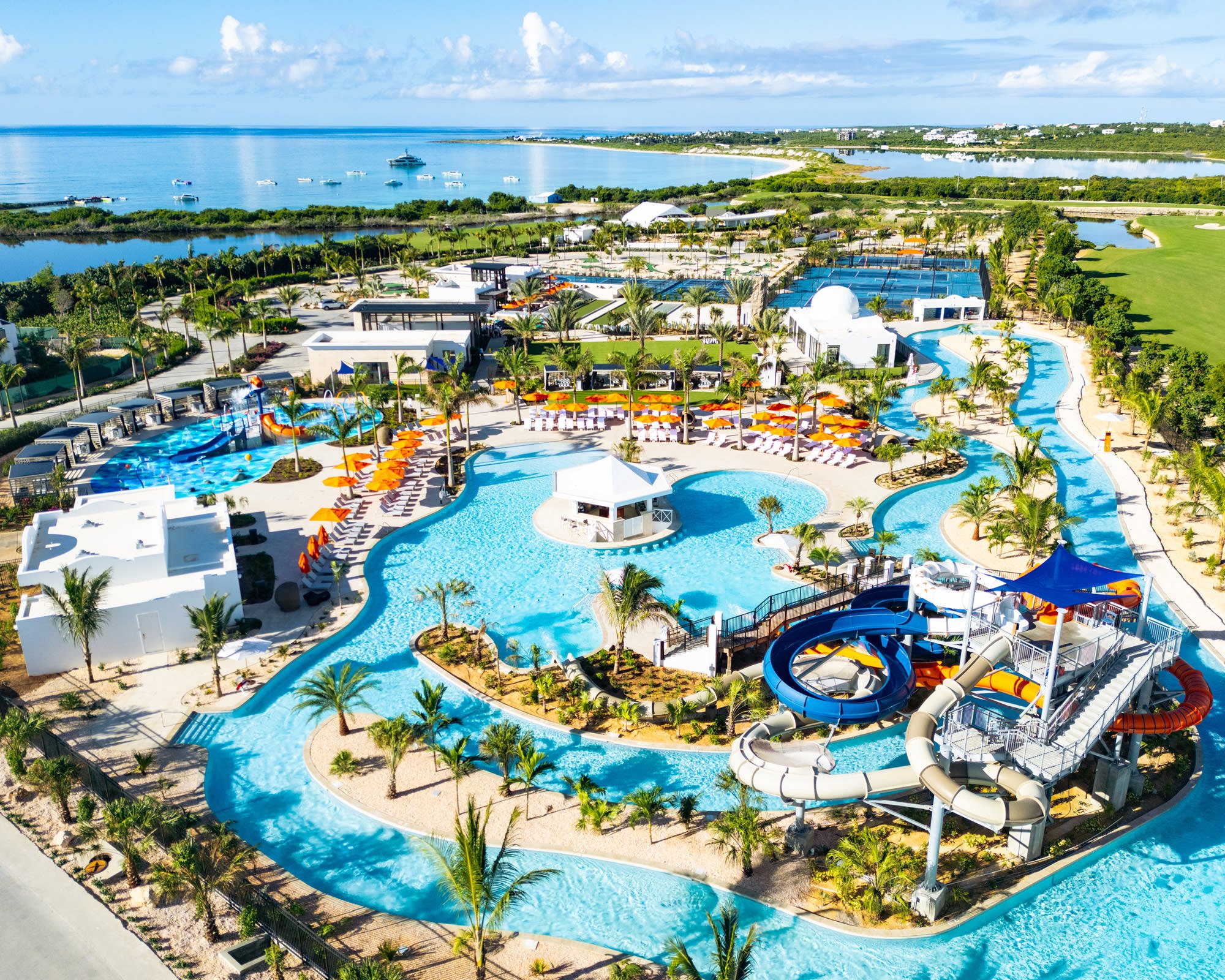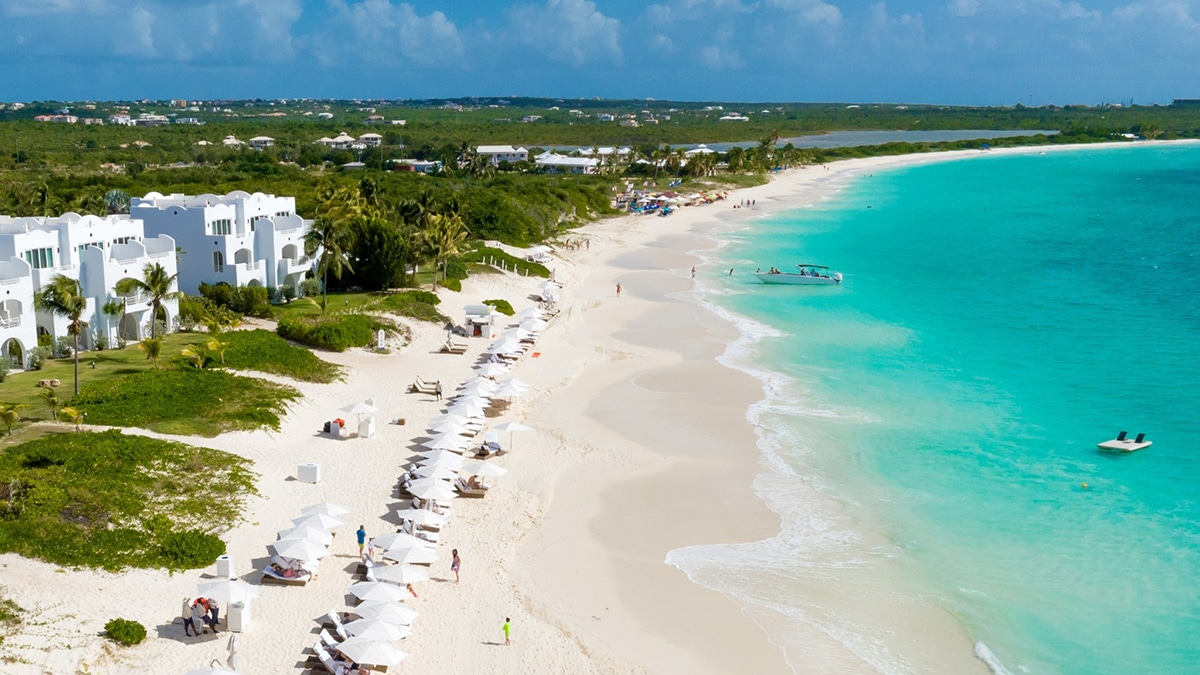Incorporate A Company In Anguilla In 2025

Anguilla, a stunning British Overseas Territory in the Caribbean, is renowned for its pristine beaches, turquoise waters, and tranquil lifestyle. With a population of around 15,000, Anguilla is known for its warm hospitality, vibrant culture, and a governance system that blends local traditions with British influence. Its economy is primarily driven by tourism, offshore financial services, and fishing, making it an attractive destination for both leisure and business.
Standard of Living in Anguilla
The standard of living in the British Overseas Territory is relatively high compared to other Caribbean nations. While the cost of living can be elevated due to reliance on imports, the island’s natural beauty, low crime rate, and close-knit society more than compensate for these challenges.
Key aspects contributing to the quality of life in Anguilla include:
- Healthcare: While healthcare services on the island are basic, residents have access to facilities in neighboring countries for specialized care.
- Education: The British Overseas Territory provides free primary and secondary education, and its schools follow a British-based curriculum.
- Infrastructure: The island has well-maintained roads, reliable telecommunications, and utilities, catering to both residents and expatriates.
Personal Taxes in Anguilla
Anguilla stands out globally as a tax haven, offering a significant advantage to residents and expatriates. There are no personal income taxes in Anguilla, making it one of the most attractive destinations for individuals seeking tax efficiency. Additionally, the island does not impose the following:
- Capital Gains Tax
- Inheritance or Estate Tax
- Withholding Tax
Residents are, however, required to pay other forms of indirect taxes, such as customs duties and a Goods and Services Tax (GST), introduced in 2022, at a flat rate of 13%.
Corporate Taxes in Anguilla
The British Overseas Territory’s tax framework is equally favorable for corporations, solidifying its position as a preferred jurisdiction for offshore businesses. The island imposes:
- No Corporate Income Tax: Businesses operating in the British Overseas Territory are not subject to income or profit taxes.
- No Capital Gains Tax: Companies benefit from tax-free gains on asset sales.
- No Withholding Tax: There are no taxes on dividends, interest, or royalties paid to non-residents.
Major Industries in Anguilla
The British Overseas Territory, a tranquil island in the Caribbean, may be small, but its economy thrives on several key industries that contribute to its stability and growth:
- Tourism:
- Tourism is the backbone of Anguilla’s economy, accounting for a significant portion of its GDP. The island’s pristine beaches, luxury resorts, and vibrant cultural events attract visitors from around the globe. High-end tourism is a particular focus, with Anguilla catering to affluent travelers seeking an exclusive Caribbean experience.
- Financial Services:
- As a recognized tax haven, Anguilla has developed a robust offshore financial services sector. This includes company formation, trusts, and captive insurance, supported by a modern legal framework that promotes confidentiality and tax efficiency.
- Real Estate:
- The booming tourism industry has spurred demand for luxury properties, vacation rentals, and investment in real estate. Many expatriates and investors are drawn to Anguilla’s high-end villas and development opportunities.
- Fishing:
- Fishing is a traditional industry, with lobster and other seafood being vital exports. The government supports sustainable fishing practices to ensure the long-term health of marine ecosystems.
- Construction:
- With growing tourism and real estate sectors, construction is a thriving industry, focusing on resort development, residential properties, and infrastructure.
Inflation and Cost of Living in Anguilla
The British Overseas Territory’s inflation rate is moderate, typically aligned with global economic trends and the cost of imports. The island’s reliance on imported goods—ranging from food to construction materials—makes it vulnerable to international price fluctuations.
The cost of living in the British Overseas Territory is relatively high compared to many other Caribbean nations, driven by factors such as:
- Housing:
- Rental and property prices are substantial, especially in high-demand areas near beaches or luxury developments.
- Food and Essentials:
- With most goods imported, grocery costs can be significant. However, local markets offer fresh produce and seafood at competitive prices.
- Utilities:
- Energy costs are high due to reliance on imported fuel, though solar energy initiatives are beginning to reduce expenses.
- Healthcare:
- Basic healthcare services are available on the island, but residents often travel abroad for specialized treatments, adding to overall costs.
Property Tax, Services, and Sales Tax in Anguilla
Anguilla’s tax regime is highly favorable, emphasizing simplicity and minimal direct taxation:
- Property Tax:
- There is no property tax in the British Overseas Territory, making it an appealing destination for real estate investors and expatriates looking to own homes.
- Goods and Services Tax (GST):
- Introduced in 2022, GST is levied at a flat rate of 13% on most goods and services. This includes imported items, utilities, and dining, contributing to government revenues.
- Stamp Duty:
- Stamp duty is applied to real estate transactions, typically ranging between 5% and 7%, depending on the property’s value.
- Customs Duties:
- The British Overseas Territory imposes duties on imported goods, which contribute significantly to government income. Rates vary by product category.
Types of Business Entities in Anguilla
Entrepreneurs in Anguilla can choose from several business structures, each tailored to different needs:
- Sole Proprietorship:
- A simple structure ideal for small-scale businesses. The owner is personally liable for all debts and obligations.
- Partnership:
- Two or more individuals share ownership and liabilities. Partnerships can be general or limited, with the latter providing liability protection for certain partners.
- Limited Liability Company (LLC):
- A popular choice for offshore businesses, offering limited liability and operational flexibility. LLCs in the British Overseas Territory are governed by modern legislation, making them easy to establish and maintain.
- International Business Company (IBC):
- IBCs are the cornerstone of Anguilla’s offshore financial services sector. These entities benefit from confidentiality, no income taxes, and ease of formation.
- Trusts:
- Anguilla’s trust laws enable asset protection and estate planning, attracting high-net-worth individuals.
- Non-Profit Organizations:
- Entities formed for charitable, educational, or social purposes can be registered as non-profits.
Licenses to Start a Business in Anguilla
Starting a business in the British Overseas Territory is straightforward, but specific licenses may be required depending on the nature of the business:
- Business License:
- All businesses operating in Anguilla must obtain a business license from the Inland Revenue Department. Fees vary by industry.
- Industry-Specific Permits:
- Certain industries, such as tourism, healthcare, and construction, require additional permits to comply with regulatory standards.
- Work Permits for Expats:
- Expatriates must secure work permits to operate or work in Anguilla. The application process involves proving the necessity of hiring foreign talent.
- Environmental Compliance:
- Businesses in construction or other sectors impacting the environment may need environmental clearance.
Opportunities for Expats for Business Growth in Anguilla
Anguilla offers numerous opportunities for expatriates seeking business growth:
- Tourism and Hospitality:
- With tourism as the backbone of the economy, there is significant potential for developing boutique hotels, eco-tourism ventures, and luxury services.
- Real Estate Development:
- Expatriates can invest in high-end residential projects, vacation rentals, or commercial properties to capitalize on growing demand.
- Offshore Financial Services:
- Anguilla’s status as a tax haven provides opportunities for setting up consulting firms, financial services, or IT companies catering to international clients.
- Renewable Energy:
- With rising energy costs, there is a growing need for sustainable solutions, presenting opportunities for businesses in solar and wind energy.
- Food and Beverage:
- Expat entrepreneurs can explore niche dining experiences or local food processing businesses to cater to tourists and residents.
Citizenship for Expats in Anguilla
Gaining citizenship in Anguilla as an expatriate requires patience and commitment:
- Residency Requirements:
- Expats must reside in Anguilla for a continuous period, typically five years, to qualify for permanent residency.
- Path to British Overseas Territory Citizenship:
- After obtaining permanent residency, expatriates can apply for British Overseas Territory Citizenship (BOTC), granting them rights within Anguilla and other British territories.
- Full British Citizenship:
- BOTC holders may be eligible to apply for full British citizenship, allowing them to live and work in the United Kingdom.
- Economic Residency Programs:
- Anguilla offers an Economic Residency Program, allowing individuals to gain residency by investing in real estate or contributing to government initiatives.
Why Register a Company in Anguilla?
The British Overseas Territory, a small yet strategically significant island in the Caribbean, is increasingly recognized as a top choice for company registration. Here’s why entrepreneurs and investors choose Anguilla:
- Tax Advantages:
- Anguilla offers a zero-tax regime, with no income, corporate, capital gains, or inheritance taxes. This tax-friendly environment is ideal for businesses looking to minimize their tax liabilities.
- Business-Friendly Legal Framework:
- The British Overseas Territory’s legal system, based on English Common Law, ensures transparency, reliability, and strong protection for business owners and investors.
- Ease of Registration:
- The island’s efficient regulatory framework allows for quick and straightforward company registration, often completed within 24 hours.
- Privacy and Confidentiality:
- Anguilla emphasizes the confidentiality of business ownership, with minimal public disclosure requirements for offshore companies.
- Global Reputation:
- Anguilla is a respected jurisdiction in the offshore financial world, offering stability and credibility to businesses operating internationally.
- Economic Opportunity:
- With thriving sectors such as tourism, financial services, and real estate, Anguilla presents significant opportunities for investment and growth.
- Flexible Business Structures:
- Anguilla offers various company structures, including International Business Companies (IBCs), Limited Liability Companies (LLCs), and partnerships, catering to diverse business needs.
How to Register a Company in Anguilla
Setting up a company in Anguilla is a streamlined process. Here’s a step-by-step guide:
- Choose a Business Structure:
- Decide on the type of entity that suits your business. The most popular choice for offshore operations is the International Business Company (IBC), known for its flexibility and minimal reporting requirements.
- Select a Company Name:
- Choose a unique name for your business that complies with Anguilla’s naming regulations. The name must not be misleading or resemble existing companies.
- Appoint Directors and Shareholders:
- Determine the individuals or entities who will serve as directors and shareholders. The British Overseas Territory allows non-residents to hold these positions, making it attractive for international entrepreneurs.
- Prepare Required Documents:
- Key documents include:
- Memorandum and Articles of Association.
- Details of directors, shareholders, and beneficial owners.
- Key documents include:
- Engage a Registered Agent:
- All companies in Anguilla must appoint a licensed registered agent based on the island to facilitate communication with regulatory authorities.
- Submit Application to the Companies Registry:
- The application, along with the required documents and fees, is submitted to the Commercial Registry for approval. Once approved, a Certificate of Incorporation is issued.
- Register for Licenses (if applicable):
- Depending on your business activities, you may need specific licenses or permits.
- Open a Corporate Bank Account:
- Set up a business bank account to manage your company’s financial operations. Many international banks are available in the British Overseas Territory.
Cost to Register a Business in Anguilla
The cost of registering a business in Anguilla is competitive, especially for offshore companies. Key costs include:
- Company Formation Fee:
- Registration fees for an IBC typically range from $250 to $1,000, depending on the services provided by the registered agent.
- Registered Agent Fee:
- Annual fees for a registered agent usually range from $300 to $1,500, depending on the level of service.
- Government Renewal Fees:
- To maintain good standing, companies must pay an annual renewal fee of approximately $250 for IBCs.
- Additional Services:
- Costs for notarization, legal advice, or additional licenses may vary.
Relation with Other Countries of Anguilla
Anguilla’s relations with other countries are shaped by its status as a British Overseas Territory, offering several benefits:
- Economic Stability:
- As part of the British legal and financial framework, the British Overseas Territory benefits from political and economic stability, which enhances investor confidence.
- International Trade:
- Anguilla enjoys strong trade relations with neighboring Caribbean nations, the United States, and Europe, leveraging its strategic location in the Caribbean Sea.
- Tax Treaties:
- While Anguilla does not have extensive double taxation agreements, its zero-tax regime often negates the need for such treaties.
- Global Connectivity:
- Anguilla’s proximity to major international hubs like the U.S. Virgin Islands and Puerto Rico facilitates business and travel.
- Diplomatic Relations:
- The British Overseas Territory’s affiliation with the United Kingdom provides access to British consular services and representation on the global stage.
Any Other Taxes in Anguilla
Anguilla’s tax regime is designed to be simple and business-friendly. While it imposes no income or corporate taxes, the following taxes and fees apply:
- Goods and Services Tax (GST):
- Introduced in 2022, the GST is set at 13% and applies to most goods and services, including imports. This tax is the primary source of government revenue.
- Customs Duties:
- Duties are levied on imported goods, with rates varying based on the product category. This can increase the cost of doing business for companies reliant on imports.
- Stamp Duty:
- Real estate transactions are subject to stamp duty, typically ranging from 5% to 7% of the property’s value.
- Business License Fees:
- All businesses operating in the British Overseas Territory must obtain a business license, with fees varying depending on the industry.
- Environmental Fees:
- Companies involved in construction or industries impacting the environment may incur additional fees for compliance with environmental regulations.
Social Security, Weather, Climate, and Regional Safety in Anguilla
Anguilla provides a basic yet effective social security system designed to support its citizens and residents. The Anguilla Social Security System offers financial assistance for retirement, sickness, maternity, and unemployment. Contributions to the fund are mandatory for both employees and employers, ensuring that individuals have access to benefits during their working years and beyond.
Weather and Climate in Anguilla
Anguilla enjoys a tropical climate characterized by warm temperatures and abundant sunshine year-round.

The island experiences two main seasons:
- Dry Season (December to April):
- Marked by pleasant weather, cool breezes, and minimal rainfall, this is the peak tourist season.
- Wet Season (May to November):
- Includes occasional rain showers and increased humidity. While rare, the island is also susceptible to hurricanes during this period.
Regional Safety and Security
The British Overseas Territory is renowned for its safety and peaceful living conditions. The island has one of the lowest crime rates in the Caribbean, making it an attractive destination for families, retirees, and expatriates. The government maintains a stable political environment and enforces strict regulations to ensure public order.
Anguilla’s close-knit community fosters a strong sense of trust and support among residents, further enhancing its reputation as a secure place to live.
Passport Power of Anguilla
The Anguillan passport, issued to British Overseas Territory Citizens (BOTC), is a powerful asset, offering significant travel privileges:
- Visa-Free Travel:
- Holders of an Anguillan passport can travel visa-free or visa-on-arrival to over 140 countries, including the United Kingdom, Canada, and the Schengen Area in Europe.
- Access to the United Kingdom:
- As a BOTC passport, Anguillan citizens have the right to live and work in the United Kingdom without restrictions.
- Global Mobility:
- The passport enhances ease of travel for business, education, and leisure, making it a valuable tool for global citizens.
The strength of Anguilla’s passport reflects its affiliation with the United Kingdom and the stability of its governance.
Scope of Education, Growth, and Essentials for Living in Anguilla
Education in Anguilla
Education in the British Overseas Territory follows a British-based system and is free and compulsory for children aged 5 to 17. Key highlights of the education system include:
- Primary and Secondary Education:
- Public schools provide quality education, with a curriculum emphasizing literacy, mathematics, and critical thinking. Private and international schools offer alternative options for expatriates.
- Higher Education:
- While Anguilla lacks major universities, local institutions like the Anguilla Community College provide vocational training and associate degrees. Many students pursue higher education abroad, often in the UK, the US, or Canada.
- Focus on Lifelong Learning:
- Initiatives to promote adult education and skills development are gaining momentum, supporting career growth for residents.
Growth Opportunities
The British Overseas Territory offers numerous opportunities for personal and professional growth:
- Career Development:
- Thriving industries such as tourism, real estate, and financial services provide high-paying job opportunities for skilled professionals.
- Entrepreneurship:
- The island’s business-friendly policies and tax advantages encourage entrepreneurship. Tourism-related ventures, eco-tourism, and real estate development are particularly promising sectors.
- Quality of Life:
- Anguilla’s relaxed pace of life, coupled with modern amenities, offers an excellent work-life balance, fostering physical and mental well-being.

Essentials for Living
- Healthcare:
- While healthcare facilities are basic, ongoing efforts to improve infrastructure aim to provide more comprehensive services. Residents can also access advanced medical care in nearby countries.
- Housing:
- The British Overseas Territory offers a range of housing options, from affordable rentals to luxurious villas. The absence of property taxes makes real estate an attractive investment.
- Community and Recreation:
- Anguilla’s close-knit community, coupled with its natural beauty, creates a welcoming environment. Residents enjoy activities such as sailing, snorkeling, and cultural festivals.
- Connectivity:
- Reliable internet and telecommunications infrastructure support remote work and international business, making Anguilla a practical choice for digital nomads and expatriates.

:max_bytes(150000):strip_icc()/TAL-shoal-bay-TODOANGUILLA0723-18c347b622c642bf88eaa9be74981edc.jpg)






